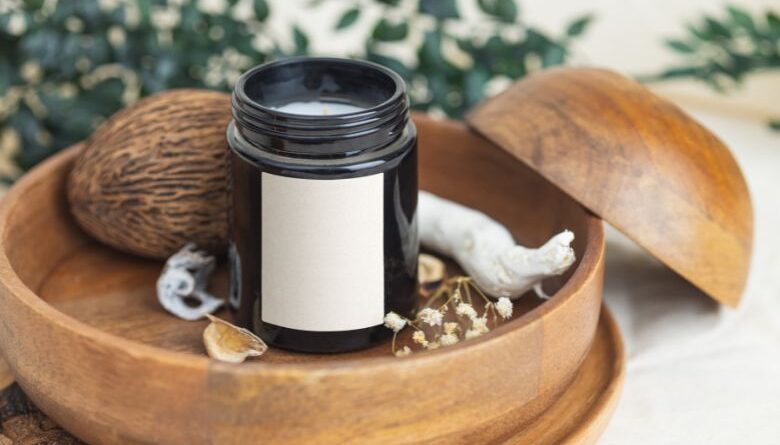The Healing Power of Aromatherapy: Essential Oils for Wellness
The Healing Power of Aromatherapy: Essential Oils for Wellness
In today’s fast-paced and stressful world, finding natural ways to promote overall well-being has become a priority for many individuals. Aromatherapy, a holistic healing practice that uses essential oils extracted from plants, has gained significant popularity due to its potential to enhance physical, emotional, and mental health. This article explores the fascinating healing power of aromatherapy and delves into the benefits of using essential oils for wellness.
What is Aromatherapy?
Aromatherapy is an ancient practice that harnesses the aromatic properties of plant-based essential oils to promote health and balance in the body and mind. These essential oils are extracted from various parts of plants, such as flowers, leaves, stems, and roots, and then used through inhalation, topical application, or even ingestion (under proper guidance) to achieve therapeutic effects.
The Science Behind Aromatherapy
Aromatherapy works on the principle that inhaling the aroma of essential oils can stimulate the limbic system in the brain, which is responsible for emotions, memories, and certain physiological functions. When we inhale specific scents, they can trigger responses in the brain, influencing our mood, stress levels, and overall well-being.
Popular Essential Oils and Their Benefits
-
Lavender (Lavandula angustifolia)
Lavender is renowned for its calming and relaxing properties. It helps reduce stress and anxiety, promotes better sleep, and can alleviate headaches and migraines.
-
Peppermint (Mentha piperita)
Peppermint is known for its invigorating and refreshing qualities. It can help boost energy levels, improve focus and concentration, and relieve digestive issues.
-
Tea Tree (Melaleuca alternifolia)
Tea tree oil possesses powerful antimicrobial properties, making it effective in treating skin conditions like acne, fungal infections, and insect bites.
-
Eucalyptus (Eucalyptus globulus)
Eucalyptus oil is excellent for respiratory health. It can ease congestion, open up the airways, and provide relief from colds and respiratory infections.
-
Chamomile (Matricaria chamomilla)
Chamomile is known for its soothing and anti-inflammatory effects. It can help alleviate skin irritations, promote relaxation, and aid in sleep.
Incorporating Aromatherapy into Daily Life
-
Aromatic Diffusion
Use an essential oil diffuser to fill the air in your home or workspace with the therapeutic scents of essential oils.
-
Topical Application
Dilute essential oils with carrier oils and apply them to your skin through massages or targeted treatments.
-
Bathing
Add a few drops of your favorite essential oil to a warm bath for a calming and rejuvenating experience.
-
Steam Inhalation
Inhale the steam of hot water infused with essential oils to relieve respiratory issues and sinus congestion.
The Safety Aspect of Aromatherapy
While aromatherapy can offer numerous benefits, it’s essential to use essential oils safely. Always dilute essential oils properly before applying them to the skin, and perform a patch test to check for any allergic reactions. Pregnant women, children, and individuals with specific medical conditions should consult with a qualified aromatherapist or healthcare professional before using essential oils.
Conclusion
Aromatherapy is a time-honored practice that harnesses the therapeutic properties of essential oils to promote physical, emotional, and mental well-being. From reducing stress and anxiety to soothing skin irritations and respiratory issues, the healing power of aromatherapy is vast. By incorporating these natural remedies into your daily life, you can embark on a journey of enhanced wellness and relaxation.
FAQs (Frequently Asked Questions)
-
Are essential oils safe for children?
While some essential oils are safe for children, it’s essential to use them under the guidance of a qualified aromatherapist or healthcare professional.
-
Can essential oils replace traditional medical treatments?
Essential oils can complement traditional medical treatments, but they should not replace them. Always consult a healthcare professional for serious health issues.
-
How often should I use aromatherapy?
The frequency of aromatherapy usage depends on individual needs and preferences. You can use it daily or as needed for specific concerns.
-
Can I ingest essential oils?
Ingesting essential oils should only be done under the supervision of a certified aromatherapist or healthcare professional, as some oils can be toxic when consumed.
-
Are essential oils vegan-friendly?
Yes, essential oils are typically plant-based and are considered vegan-friendly. However, always check the sourcing and manufacturing practices of the brands you choose.
- Maintaining Bone Health: Calcium and Vitamin D Importance




